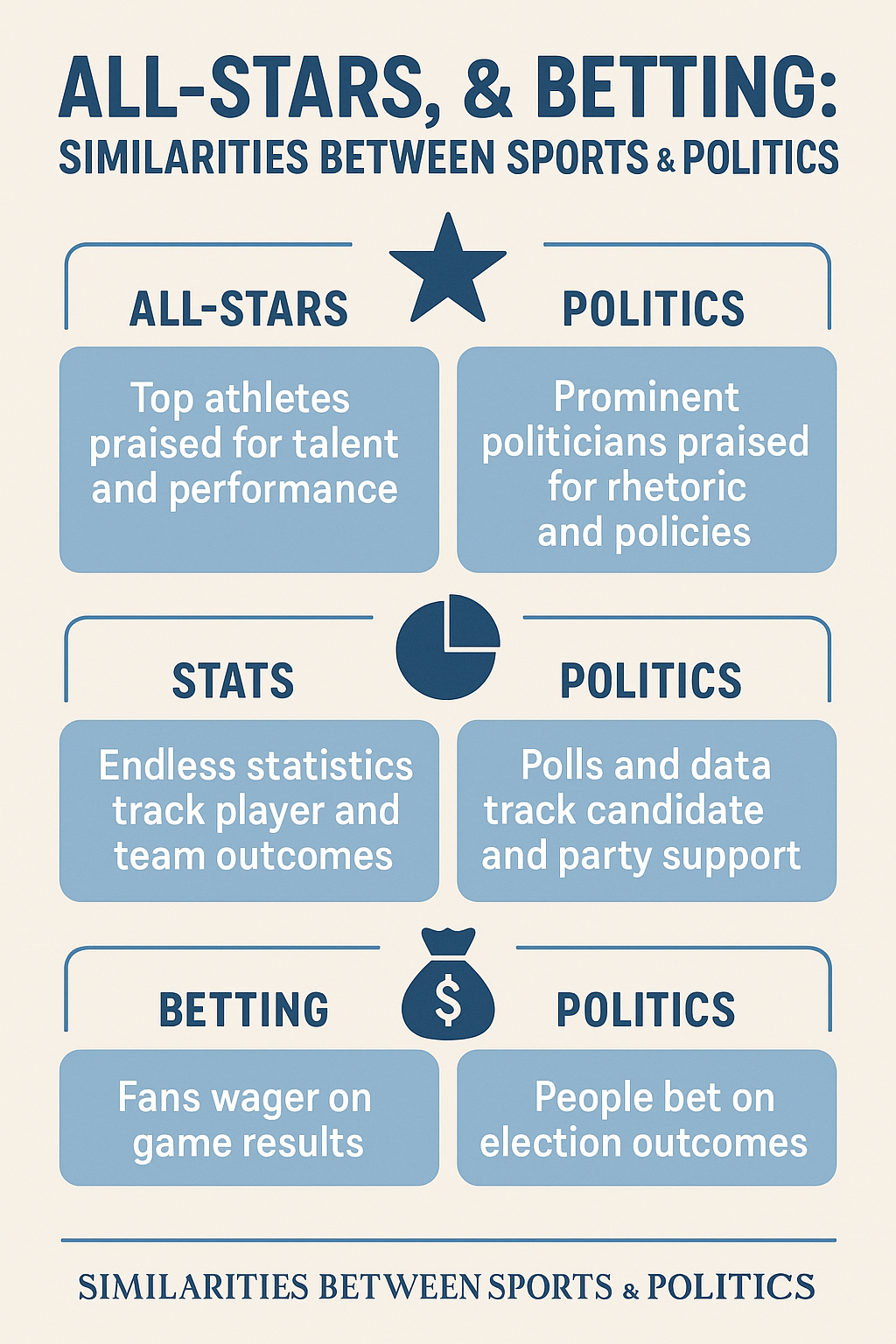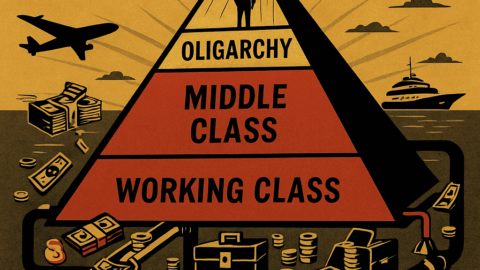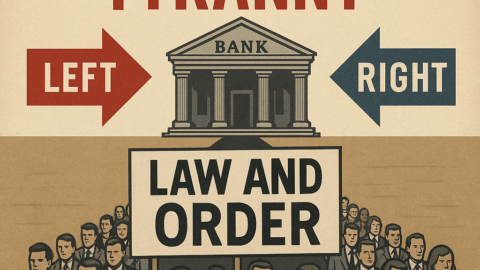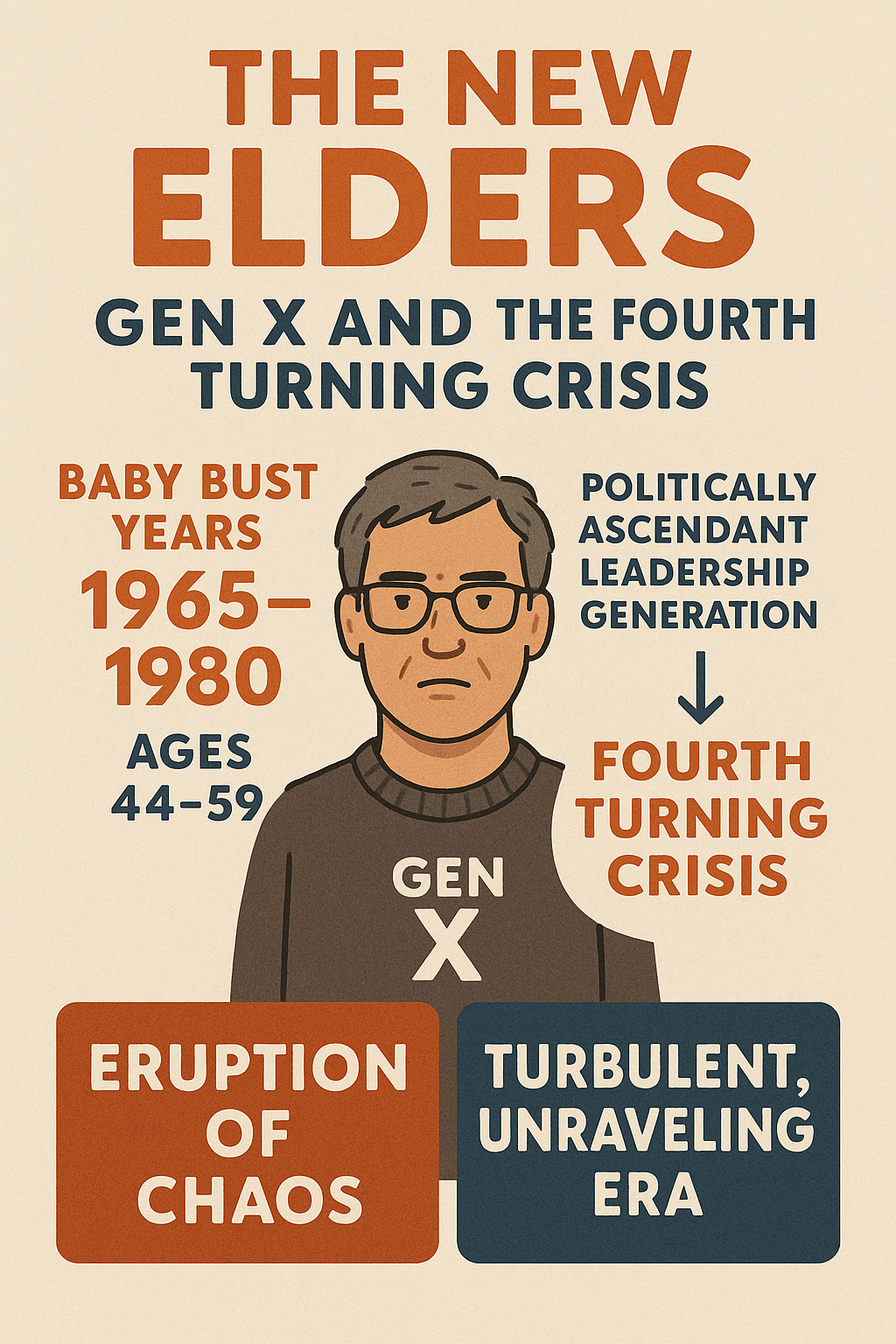Political intrigue mirrors sports betting in that it requires deep analysis, strategy, and an understanding of key players and their motivations. Just as sports bettors study stats, injuries, team dynamics, and matchups, those who analyze politics must track corporate interests, ideological alignments, financial backers, and government trajectories.
Let’s break this down further.
Political Intrigue as a Game of Strategy
In both sports and politics, success depends on:
- Knowing the players – Politicians, lobbyists, corporate backers, think tanks, and media allies.
- Studying past performance – Voting records, policy decisions, and how power players have operated historically.
- Assessing strengths and weaknesses – Which politicians or institutions hold leverage, who is compromised, and where vulnerabilities exist.
- Predicting the next move – Understanding the direction of policy, economic shifts, and geopolitical decisions.
Much like a sports team builds a championship roster, political factions build coalitions of power—aligning with industries, media, and institutions to push their agenda forward.
Following the Money – The Key to Understanding Outcomes
In both sports and politics, money dictates outcomes:
- In sports, big-market teams (like the Yankees, Lakers, or Patriots) have advantages due to their financial resources.
- In politics, corporations, lobbyists, and special interests fund campaigns, shape media narratives, and influence laws.
Examples of Financial Influence in Politics:
- Big Pharma lobbying influences healthcare legislation.
- Defense contractors ensure continuous military spending.
- Silicon Valley & Big Tech push policies that benefit their monopolies.
- Wall Street banks shape economic policies through regulatory capture.
Just like a sports bettor checks injury reports and Vegas odds, an informed political observer follows the money trail to see who is funding what, and why.
The “League” of Global Power & Ideology
Think of global politics as a sports league with multiple teams (nations, corporations, ideologies) competing for dominance. Some key dynamics:
- Superpower Rivalries (U.S. vs. China = a geopolitical Super Bowl)
- Alliances & Trades (Think NATO, BRICS, trade deals)
- Free Agents & Transfers (Politicians switching parties, CEOs moving between corporate and government jobs)
- Rule Changes & Referees (Regulatory shifts, Supreme Court decisions)
Just like in sports, upsets happen, dynasties rise and fall, and unexpected game-changers emerge. The key is reading the field and anticipating the next shift.
The Public as Spectators vs. Active Participants
Most people watch politics like casual sports fans—they root for their “team” without understanding the deeper strategy. Meanwhile, elites and insiders play the real game behind the scenes, just like high-stakes gamblers betting on games while the public cheers from the stands.
- Casual Fans (Most Voters): Follow headlines, believe surface-level narratives, vote based on emotions.
- Serious Bettors (Political Analysts, Insiders, Researchers): Track power plays, policy shifts, corporate influence, and deep connections.
The key question: Will the public remain passive spectators, or start playing the game themselves?
Thoughts
Political intrigue is not random—it follows patterns just like sports. The winners are those who study the game, follow the money, and anticipate the next move. If people treated politics like a high-stakes sport, they would see through deception, understand power dynamics, and make more informed decisions. The question is: Who is really making the bets, and who is just watching the show?
The “All-Stars” of Constitutionalism and Conservatism
In this framework, the greatest players representing the Constitution and conservative principles would include:
- Thomas Jefferson – The primary author of the Declaration of Independence and a strong advocate for limited government, states’ rights, and agrarian democracy. His opposition to central banking and belief in decentralization make him a pillar of classical liberalism.
- James Madison – The “Father of the Constitution” and key architect of the Bill of Rights, Madison championed a government constrained by checks and balances.
- Barry Goldwater – The modern conservative standard-bearer, whose 1964 presidential campaign laid the foundation for the Reagan Revolution.
- Ronald Reagan – Advanced pro-market economic policies, limited government rhetoric, and a strong anti-communist foreign policy.
- Calvin Coolidge – A staunch advocate of fiscal conservatism, small government, and laissez-faire economics during the Roaring Twenties.
These figures represent the defense of the Constitution as written, pushing back against the expansion of federal authority.
The “All-Stars” of Progressivism
On the progressive side, the major players shaping an evolving, more centralized government include:
- Abraham Lincoln – Although revered by many, Lincoln’s presidency saw a significant expansion of federal power, particularly through the suspension of habeas corpus and wartime executive actions.
- Woodrow Wilson – A progressive champion, Wilson introduced the Federal Reserve, the income tax (16th Amendment), and greater federal regulatory oversight. His views on governance leaned heavily toward technocratic control.
- Franklin D. Roosevelt – Architect of the New Deal, which expanded the federal government’s role in economic management, social welfare, and regulation. His presidency laid the foundation for modern liberalism.
- Lyndon B. Johnson – The Great Society and War on Poverty further cemented federal intervention in economic and social policy.
- Barack Obama / Joe Biden – Their presidencies continued progressive trends with expanded healthcare programs, increased regulatory oversight, and social justice-driven policies.
Understanding Political Strategies Through the Sports Betting Model
- Just as a sports bettor evaluates a team’s past performance, policy analysts examine historical data to predict future political trends.
- Star players (key political figures) have strengths and weaknesses, influencing outcomes like policy changes, elections, and Supreme Court rulings.
- Coaches and owners (think tanks, donors, corporate backers) shape the direction of the teams (political parties).
- Upsets and unexpected plays happen in both fields—like an underdog team winning a championship, a political outsider can shake up the system.
This approach makes it easier to understand how political ideologies clash and how certain figures dominate their respective movements.







